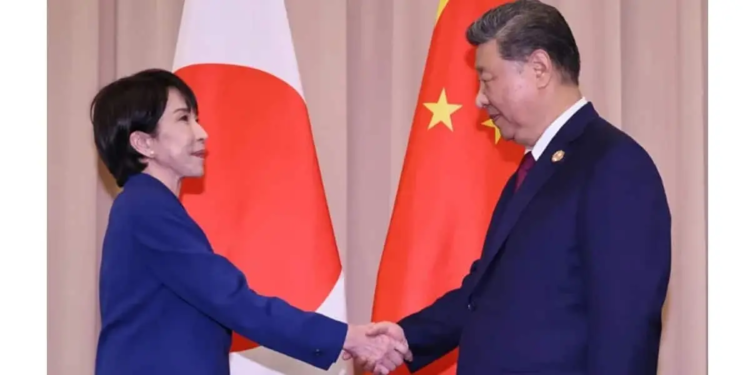The open crisis between Beijing and Tokyo over Taiwan quickly transformed into an economic standoff. Since mid-November, China has stepped up retaliatory measures against Japan, following remarks by Prime Minister Sanae Takaichi referring to a possible military intervention in the event of a Chinese attack on Taiwan.
On November 21, Beijing sent an official letter to the Secretary General of the United Nations to denounce the Japanese position, while accusing Tokyo of threatening its sovereignty. This reaction marks the internationalization of a dispute which, a few days earlier, had been limited to diplomatic matters.
Economic restrictions and a halt to tourism
From November 14, China targeted several key sectors of the Japanese economy. Beijing first issued a travel warning advising against travel to Japan, followed by exceptional measures in air transport: several Chinese companies offered refunds or free changes for flights to Tokyo and Osaka.
The Japanese tourism sector, very dependent on Chinese visitors, fears a shock similar to that of 2023, when Chinese arrivals fell sharply.
The measures then touched the cultural field. Since November 17, some Japanese film releases in China have been suspended or postponed, an unusual signal from Beijing amid a bilateral disagreement.
The crisis intensified on November 19, when Chinese authorities announced the suspension of imports of several Japanese seafood products. This decision comes only a few days after the partial resumption of Chinese purchases in this sector, interrupted since 2023.
In the agri-food industry and in tourism, Japanese companies are now worried about a lasting deterioration of their markets in China.
Naval tensions and diplomatic impasse
At the same time, tensions have increased in the East China Sea, where Chinese patrols have been reported around the Senkaku/Diaoyu Islands, claimed by both countries. Tokyo denounced a brief incursion by Chinese ships into its territorial waters.
The diplomatic meetings of November 15 and 18 did not make it possible to resolve the differences.
The letter addressed to the UN now symbolizes a new phase: that of a diplomatic crisis which directly affects markets, strategic sectors and commercial relations between the two most important economies in Asia.
Also read:








